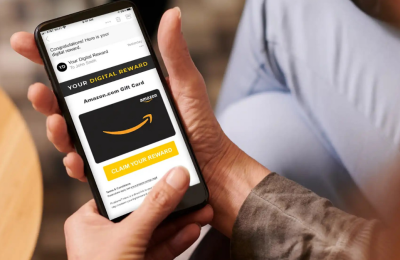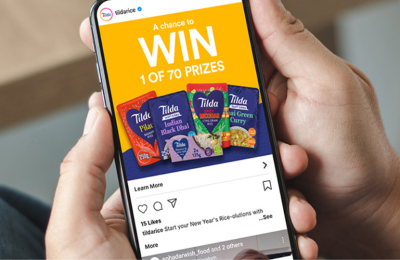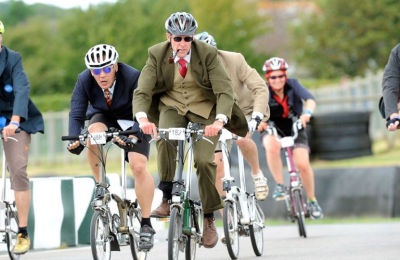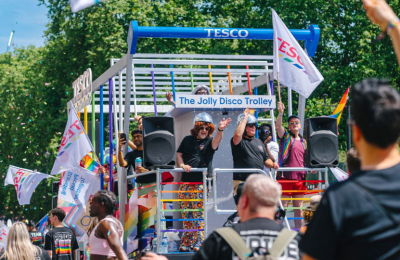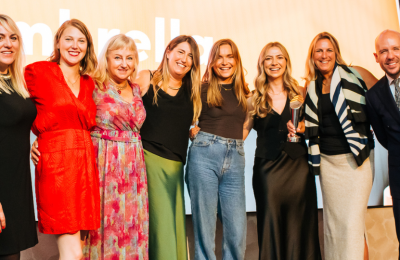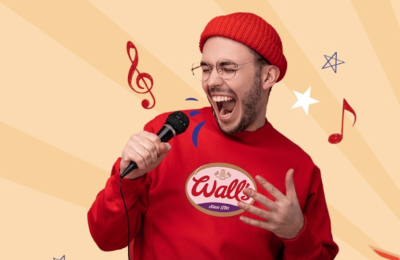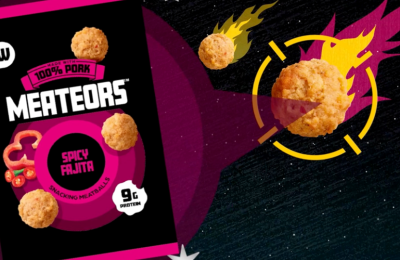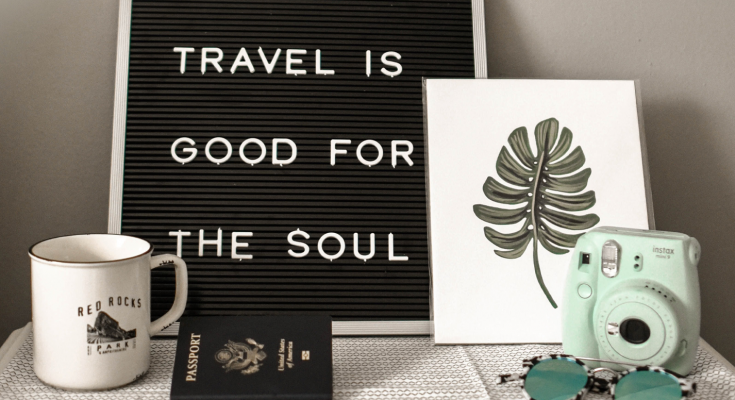Justine Clement, Founder & CEO at The Life Adventure & The Happy Prize Company explores what’s going on behind the scenes in the world of travel prizes.
As Zachary Stein recently said “It is hard to know what to say when history is unfolding in real-time. Events are pressing in upon us — welcome to the unbearable intimacy of planetary catastrophe.”
Whether you think that’s a little dramatic or not, every day the news provides us with dizzying information that a few weeks before would have been unthinkable. Life has undoubtedly been a whirlwind since we first heard the term COVID-19. Over these few short weeks, this pandemic has posed profound health concerns and an array of ever-shifting challenges and disruptions to both our home lives, such as schools closing, to the businesses, brands and agencies we work for and run. Many of us working in the promotional marketing sector are experiencing the effects of thousands of cancelled or deferred holidays, along with events, such as the Olympics and Wimbledon (just announced). Much of this has led to huge financial uncertainty – and that can be unnerving, to say the least.
So, what’s going on behind the scenes in the world of travel prizes?
Travel isn’t just about going places; it’s about the people you meet along the way who say or do something which makes you think differently about life and who opens your eyes to new ways of being. It’s also about the millions of people working behind the scenes, either at home or overseas, who get us there in the first place. Often, these are incredibly long-standing, enthusiastic and passionate individuals who make the travel industry their lifetime focus. How has this affected them and what’s happening in the small, but not insignificant area of travel, in the promotional marketing sector?
Three weeks ago, things began unravelling like a giant stack of cards. Updates from airlines, the foreign office and ABTA, came into our inboxes thick and fast – around one every three minutes. This continued unabatedly for two weeks as countries began shutting down or issuing warnings for travellers to self-isolate for fourteen days on arrival. Airlines were confused about restrictions and hotels waited like sitting ducks to see what would happen next and who would, or would not, arrive through their doors. These updates were so fast, it was unnerving and almost impossible to keep up with.
Winners from headline-grabbing campaigns, run by large multinational FMCG brand clients, began calling in to ask our advice on what course of action to take. Everyone was confused, and I mean everyone. On every side of the industry and in every area of government. The problem was, no one could keep track as the advice was changing at lightning speed. CEOs from airlines such as BA began reporting they had never seen anything like it in their entire company history. At around 10% of most countries GDP, big, big money is at stake in the tourism sector.
Finding solutions and mitigating risks
Over these past few weeks, both our brand and agency clients seem to have had an innate understanding that postponing their trip, rather than cancelling it altogether, is the right thing to do. Interestingly, winners too, who were (and are) due to travel have also been keen to defer, rather than cancel. They all see the bigger picture: that postponing helps small businesses like us, but it also helps the airlines, the charming, family-run hotels and lodges in destinations; the expert guides, the lady selling intricately beautiful local handicrafts at that UNESCO World Heritage Site and the innumerable others who make up the estimated 10% of people worldwide who work in tourism. We are going to want them there when we do eventually start going on holiday again. And boy, are we all going to need a holiday when this is all over – wherever in the world that may be.
And whilst the consideration of clients and winners has been heart-warming, now there is little choice. In most cases, over the course of ten days, airlines, hoteliers and tour operators arrived at breaking point and to protect themselves, moved to issuing vouchers or allowing changes only (no cancellations or refunds). Right now, the constant updates we receive have slowed to around five a day. Planes are grounded and attractions are closed. En masse furloughing in all sectors of the UK travel industry has been actioned in order to save businesses and thus jobs. And so for some, the frenetic pace of the travel industry has slowed and has finally been forced to pause, albeit briefly for a well-earned rest amongst the chaos.
For us, that means switching winner’s holidays to new dates. No one is stranded, but it is taking a considerable length of time to organise each change. That’s mostly due to a lack of residual staff who have been kept on to deal with these changes -working from home and holding on phone lines for hours to airlines and bed banks. If you’re working with any IPM members who supply you with travel products, what this means for you, is that you can sit back and allow them to do all the hard lifting, safe in the knowledge that everything will be taken care of, as much as is possible. Prize agencies like us will also be in constant touch with their winners, and no doubt also in constant touch with the latest advice, including supporting the discussions that the CAA and ABTA have been having with the Government to amend the Package Travel Regulations (PTRs) which seek to safeguard those travelling. It also safeguards the industry in times of massive upheaval and it’s at times such as these, you’ll be pleased you chose an experienced company with the correct licences to guide you through these troubled waters.
Will using travel as a prize or reward be different when all this is over?
Ultimately, there will be personal and strategic choices made by brands and agencies over the coming months. How will you feel about life after this is all over? How will your CEO? As I write this article, we’re just two weeks into restrictions. You’re possibly keeping yourself quite busy right now; answering client briefs, putting promotions on hold or trying to mitigate issues down the line and attempting to navigate the unchartered territory of unknown and ever-changing timescales. You may even be furloughing staff, depending on your position. Perhaps you’re wondering “When will it all just get back to business as usual?”. But the biggest question of all is “Will it be business as usual ever again? And, should it be?
Well, that rather depends on us all. Will companies emerge feeling that this pandemic was just a massive inconvenience to shareholder or stakeholder growth? Or will it go down in history as one of the biggest human tragedies of all times? As a B Corp business, We find ourselves asking what role travel will play in all this. It’s unlikely, in the discussions I’ve had with senior people in the industry, to quickly bounce back to where it was, certainly not in the short term. My view on this right now, is that we’ll see a shift in behaviour and taste, certainly in the short term – and who knows from there. We’ll see new experiences emerging in areas such as these:
Philantourism: a combination of philanthropy and tourism. The act of choosing a holiday or experience in order to support a destination in need of visitors.
Meaningful Travel: when travel enriches your life in some way. That could be done by focusing on making your own life better by discovering and learning new things about the world and yourself. … Meaningful travel is about being aware of your footprint and doing what you can to help the places that you visit
Sustainable Travel: visiting somewhere as a tourist and trying to make a positive impact on the environment, society and economy you visit.
Local Travel: taking a holiday locally to you, where you pretty much skip the carbon footprint altogether and focus on artisan grounding and learning experiences.
Wellbeing Travel: the desire to promote, maintain and improve one’s health and wellbeing while on holiday or travelling for business.
The Here and Now
In the meantime, until we begin thinking about travelling to other parts of the world again, or getting together for entertainment or sporting events, there are certainly some online alternatives you could consider as prizes and rewards. Here are a few ideas we’re working on with clients:
Digital Entertainment Subscriptions: these provide a little something to help keep people occupied during the isolation period. Ideas include Amazon Prime, Apple TV, Netflix, Spotify and book subscription services.
Online Vouchers: for almost anything, including supermarkets.
Online Learning Subscriptions: again, these usually come in the subscription form and could include ideas such as Lynda.com, Udemy, Treehouse and Skillshare.
Online Emotional and Physical Wellbeing subscriptions: choose from the likes of Calm, Headspace, Fiit and Yogitimes.
Entertainment Packs: physical items such as TV’s, phones and other electronic equipment.
What can we do?
Whilst we’re all feeling the effects in many different ways and to varying extremes, those who are fortunate enough to be in a position to give, are all asking themselves the same question: What can we do? As part of the B Corp community, and as a newly certified B Corp, we’re committed to the following, which may also be useful to you, your team, your agency or your brand, as guidance:
Lead well
Be a company that people can count on for honest, timely, and heartfelt support and advice. That’s who we are as a company. Care about your team, your customers, and your communities. Recognize that we all have a responsibility to others that extends beyond ourselves and know that your actions serve as an example to others.
Support a small business
Economic downturns hit small businesses the hardest, and there’s never been a better time to use our power as consumers to support the companies who need it the most. Remember small and mid-size businesses as you stock up on household supplies and shop directly on their website whenever possible. Share your favourite small brands on social media.
Volunteer virtually
The most vulnerable members of our communities are in greater need than ever, but volunteering has become much more complicated. Here’s a link to a US-based, but still relevant, article top 10 list of things to do to volunteer while quarantined.
Reallocate unused budgets to local charities
Since most offices have transitioned to working remotely, some companies may have unused budgets for supplies like snacks and cleaning products. Individuals may be spending less on parking or public transport. Reallocating a few of those expenses to a charity is a great way to help people in need.
Give blood
Due to an unprecedented number of blood drive cancellations, the Red Cross is facing a severe shortage of blood to support patients in need of necessary surgeries. It is still safe for eligible and healthy donors to donate blood, and you can schedule an appointment online. Find a location near you.
Choose companies that give back
The B Corp community is built on a commitment to using business as a force for good, and they’re finding new ways to support their employees and give back to their communities during unprecedented challenges. Visit @bcorp UK on Instagram to learn more.
Share your knowledge
If you have the time and resources to spare, consider offering your network a pro bono, informal consultation in your area of expertise — for example, tech recommendations for working remotely or project managing a remote team. Using the skills and knowledge you may take for granted, you might be able to help someone who is feeling overwhelmed or alone navigate through a difficult time. One great example, with thousands of contributors, is The Coronavirus Tech Handbook which has been created through crowdsourced information. Remote working is not just about a different location – it requires a whole new approach to work.
Check in on a neighbour
Check in on your neighbours who may need a helping hand, such as higher-risk individuals or parents at home with kids. You may be able to assist with a much-needed errand or a friendly smile.
Keep connecting
Human connection is a critical part of mental health, but physical distancing is keeping us all separated from friends, families, co-workers, and communities. Though it takes extra effort, it’s invaluable to create moments of social connection with the people in your personal and professional circles.
And finally…
It’s unlikely we’ll go back to the same normal. When we eventually step clear of this moment, we’ll have discovered things about our organisations, our leaders, our societal systems, our friends, our enemies and most of all, ourselves. We will know something of our resilience, our capacity for forgiveness, and our mutual vulnerability. Perhaps, it is a time to pay attention, to be mindful, to be observant.
Looking back, what did we really learn from the financial crisis? Some say, not too much. It’s been said that it takes two crises to change behaviour. Some of us may have change thrust upon us during this period, some may not. But what is unfolding is about more than just a virus. It’s about how we respond to the virus. It’s about who we become as people and businesses when presented with a profoundly painful and transformational ordeal.
So, ask yourself, “What part will I play in the positive resetting of the brand or agency I work for?” How will you reset your life after this experience? To turn back again to Zachery Stein “History is unfolding in real-time. This is it: we have arrived at the end of the world. Finally. Now we can start to build a new one. This is our chance to reshape ourselves as spiritual, scientific, and ethical beings.”
To find out more about The Happy Prize Company, get in touch with Justine Clement: justinec@thehappyprizeco.com



